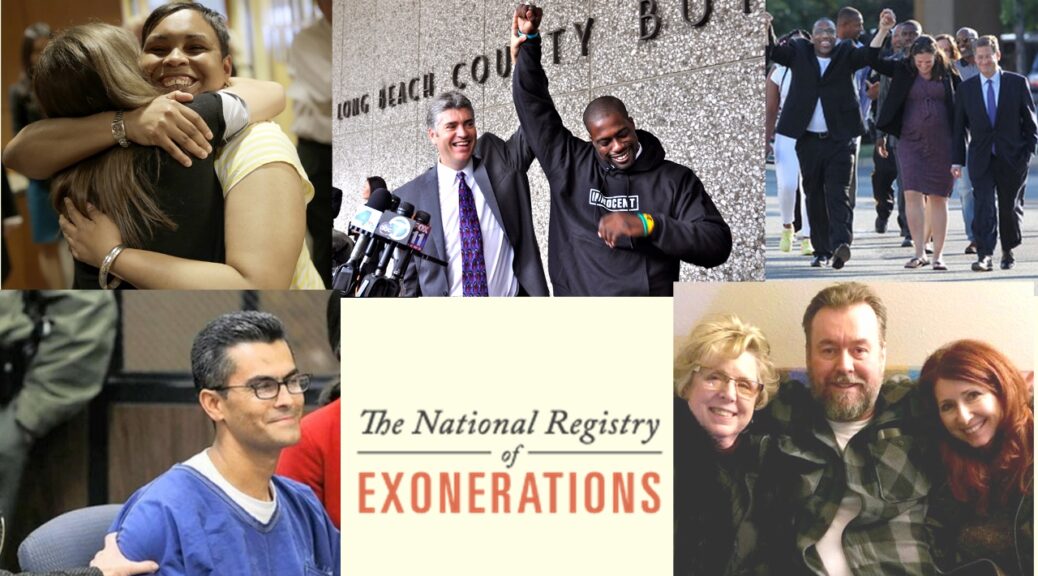March 14 Peace Love Art Activism
BLACK HISTORY
License
March 14, 1835: the Missouri General Assembly passed a law that required free Black people to apply for a license to remain in the state. Black people who failed to do so faced fines up to $100, incarceration, and expulsion from Missouri. Fearful of a growing Black population, white legislators enacted the law in an attempt to force Black people out of the state and empowered authorities to seize any free Black person that they suspected lacked a license.
Missouri’s law imposed onerous requirements on applicants. Free Black residents had to establish continuous residency for at least a decade, and “produce satisfactory evidence… that [the applicant] is of good character and behavior, and capable of supporting [themselves] by lawful employment.” The law also obligated Black people to obtain a new license each time they moved to a different county.
In 1837, the Missouri Supreme Court upheld the license law. [EJI article] (next BH, see Oct 21)
March to Montgomery
March 14, 1965: SNCC staff members led 400 Alabama State University students, joined by a group of white students from across the country, on a march from the ASU campus to the Capitol. Although Montgomery police react peacefully to the march, as the students approach the Capitol, state troopers, the sheriff’s office, and a posse it had deputized attack the marchers. (BH, see Mar 15; see MM for expanded chronology).
School Desegregation
March 14, 1972: the Boston chapter of the NAACP filed a class action lawsuit against the Boston School Committee on behalf of 14 black parents and 44 children. Tallulah Morgan headed the list of plaintiffs and James Hennigan then chair of the School Committee, was listed as the main defendant. The case was called Morgan v. Hennigan. The plaintiffs’ legal team decided to pursue the case as a violation of the U.S. Constitution. The School Committee was charged with violating the Thirteenth and Fourteenth Amendments as well as the 1964 Civil Rights Act. The plaintiffs claimed that the defendants, the School Committee, the Board of Education, and the Education Commissioner had “intentionally brought about and maintained racial segregation in the Boston Public Schools.” In short, while Boston was not experiencing “de jure” segregation (segregation as a result of the law), it was experiencing “de facto” segregation (segregation as a result of action). (BH, see June 4 ; SD, see June 22)
BLACK & SHOT
March 14, 2016: nearly a year after the federal Justice Department declined to bring civil rights charges against white police officer Aaron Hess who fatally shot black college student Danroy Henry, Henry’s family has agreed to a $6 million settlement, a lawyer for the family announced. (see Apr 25)
6888th Central Postal Directory Battalion
:focal(696x537:697x538)/https://tf-cmsv2-smithsonianmag-media.s3.amazonaws.com/filer_public/13/a8/13a888d0-0ced-41c3-ac31-5cc2cd081d75/dyljcdixgaelsyj.jpg)
March 14, 2022: President Joe Biden signed into law a bill awarding the Congressional Gold Medal to the 6888th Central Postal Directory Battalion. The battalion was the only all-Black Women’s Army Corps unit to serve in Europe during World War II. [Afro article; Smithsonian article] (next BH, see Mar 29 )
March 14 Peace Love Art Activism
Technological Milestone
Henry Ford
March 14, 1914: Henry Ford announced the new continuous motion method to assemble cars. The process decreased the time to make a car from 12½ hours to 93 minutes. (Ford article) (see October 28, 1922)
March 14 Peace Love Art Activism
March 14 Music et al
Fear of Rock
see Keep the Air Clean Sunday Society for more
March 14, 1927: the head of the New York City Keep-the-Air-Clean-Sunday Society objected to radio station WMCA’s playing of jazz music on Sunday nights, charging that it was “degrading” and “defaming.” In response, listeners flooded the station with letters stating they had no objection to the one-hour program from 6 to 7 p.m. on Sundays. The Federal Radio Inspector for the New York District explained that he had no power to censor the content of radio programs, but that he was referring the matter to the newly created Federal Radio Commission. In the 1920s and 1930s, many self-appointed guardians of public morals condemned this new music called “jazz.” The attacks were prompted by the rhythms that moralists feared would lead people to immoral behavior, and also because jazz was primarily an African-American music. In the 1950s and 1960s, the self-appointed guardians of public morals had the same objections to the new music “rock and roll.” (see January 28, 1944)
LSD/ Humphry Osmond
March 14, 1957: Humphry Osmond first proposed the term “psychedelic” at a meeting of the New York Academy of Sciences. From his paper: “If mimicking mental illness were the main characteristic of these agents, “psychotomimetics” would indeed be a suitable generic term. It is true that they do so, but they do much more. Why are we always preoccupied with the pathological, the negative? Is health only the lack of sickness? Is good merely the absence of evil? Is pathology the only yardstick? Must we ape Freud’s gloomier moods that persuaded him that a happy man is a self-deceiver evading the heartache for which there is no anodyne? Is not a child infinitely potential rather than polymorphously perverse?
I have tried to find an appropriate name for the agents under discussion: a name that will include the concepts of enriching the mind and enlarging the vision. Some possibilities are: psychephoric, mind moving; psychehormic, mind rousing; and psycheplastic, mind molding. Psychezynic, mind fermenting, is indeed appropriate. Psycherhexic, mind bursting forth, though difficult, is memorable. Psychelytic, mind releasing, is satisfactory. My choice, because it is clear, euphonious, and uncontaminated by other associations, is psychedelic, mind manifesting. One of these terms should serve.”
He said the term was “clear, euphonious and uncontaminated by other associations.” Aldous Huxley had sent Osmond a rhyme containing his own suggested invented word: “To make this trivial world sublime, take half a gram of phanerothyme” (thymos meaning ‘spiritedness’ in Greek.) Osmond countered with “To fathom Hell or soar angelic, just take a pinch of psychedelic.” (Osmond’s NYT obit)
Josiah Macy Foundation
In 1959: Josiah Macy Foundation sponsored major scientific congress on LSD. (JMF site)
Allen Ginsberg
In 1959: beat poet Allen Ginsberg tried LSD for the first time. (see April 22 – 24)
The Beatles
March 14, 1964: Billboard reported that sales of Beatles records made up 60% of the entire singles market. (see Mar 19)
March 14 Peace Love Art Activism
JFK Assassination
Jack Ruby
March 14, 1964: Jack Ruby was found guilty of the “murder with malice” of Oswald and sentenced to die in the electric chair. It was the first courtroom verdict to be televised in U.S. history. (see September 27, 1964)
March 14 Peace Love Art Activism
Vietnam
My Lai Massacre
March 14, 1968: while Charlie Company was on a patrol, Sergeant George Cox was killed by a booby trap and two other GI’s were seriously injured. In one of the first documented instances of outright aggression, frustrated and angry members of Charlie Company lash out – while passing through a Vietnamese village on their return to camp, troops shoot and kill a woman civilian working in a field. (Vietnam, see Mar 16 ; see My Lai for expanded story)
March 14 Peace Love Art Activism
Jack Kevorkian
March 14, 1998 – Jack Kevorkian’s 100th assisted suicide: a 66-year-old Detroit man. (see Kevorkian for expanded story)
March 14 Peace Love Art Activism
“Mixed” marriages
March 14, 2006: the Pew Research Center reported that more than one-fifth of all American adults (22%) say that they had close relative who is married to someone of a different race. (2015 PEW study on mixed race marriage)
March 14 Peace Love Art Activism
STAND YOUR GROUND LAW
March 14, 2012: In Flagler Beach, FL, Paul Miller, 66, shot and killed Dana Mulhall, 52. Mulhall was unarmed when Miller opened fire as the two argued across a front yard fence about Miller’s barking dogs, investigators said. (Flaglerlive dot com article) (Stand Your Ground, see Mar 21; Paul Miller, see Feb 4, 2013)
March 14 Peace Love Art Activism
Stop and Frisk Policy
March 14, 2013: the 5,000,000th person was stopped in NYC with its stop-and-frisk program. (2016 ACLU article) (see Aug 12)
March 14 Peace Love Art Activism
LGBTQ
Same-sex marriage Tennessee
March 14, 2014: federal judge Judge Aleta Trauger granted a preliminary injunction against Tennessee’s ban on same-sex marriage in certain instances.
In October three same-sex couples filed a lawsuit asking the state to recognize their marriages that had been performed in states where gay marriage was legal. The four couples taking part in the suit were living and had been married in New York or California but had moved to Tennessee.
“At this point, all signs indicate that, in the eyes of the United States Constitution, the plaintiffs’ marriages will be placed on an equal footing with those of heterosexual couples and that proscriptions against same-sex marriage will soon become a footnote in the annals of American history,” Trauger wrote in the order. (see Mar 21)
Kedarie Johnson’s murder
March 14, 2017: the Iowa Attorney General’s office was asked to lead the prosecution of Jorge “Lumni” Sanders-Galvez, 22, one of two men accused of killing Burlington High School student Kedarie Johnson.
Laura Roan, an assistant attorney general, entered the case and Des Moines County Attorney Amy Beavers would likely serve as co-counsel.
Sanders-Galvez filed a written plea of not guilty rather than appear as scheduled.
The co-defendant, Jaron “Wikked West” Purham, 27, remained in the St. Louis County, Mo., jail in St. Louis on charges there. Purham would be returned to Des Moines County to face murder charges in the killing of Johnson when the Missouri cases are resolved. (Des Moines Register article) (LGBTQ, see Mar 14; Johnson, see Oct 15)
Beauty and the Beast
March 14, 2017: Walt Disney Studios refused to cut a brief, gay-themed scene from “Beauty and the Beast” as demanded by government censors in Malaysia, meaning the film would not open as scheduled.
The Film Censorship Board of Malaysia had ruled that a shot involving two male characters dancing in a ballroom must be cut from the movie, on the grounds that it promoted homosexuality. The sequence was three seconds long.
“The film has not been and will not be cut for Malaysia,” Disney said in a statement.
The film’s director, Bill Condon, called the scene in question — involving a character named LeFou, manservant to the villain, Gaston — an “exclusively gay moment.” (see Mar 15)
March 14 Peace Love Art Activism
Religion and Public Education
FREE SPEECH
March 14, 2014: a federal district court approved a consent decree requiring the Sabine Parish School Board (Louisiana) to cease a variety of unconstitutional practices that impose religion on students at Negreet High School and other Sabine Parish Schools.
The consent decree, a court order agreed to by both parties, ended a lawsuit filed in January by the American Civil Liberties Union and the ACLU of Louisiana on behalf of a Buddhist sixth-grader of Thai descent, “C.C.,” who was harassed by staff and students because of his faith.
“No child should feel that a teacher is trying to impose religious beliefs, and this agreement ensures that this will no longer be the case at Sabine Parish schools,” said Marjorie Esman, executive director of the ACLU of Louisiana. “We’re glad the school board worked with us to bring this matter to a quick and amicable resolution.”
Under the consent decree, the school board must end official prayers during class and school events, refrain from disparaging any particular faith, and prohibit staff from teaching creationism and other biblical doctrine as fact. The consent decree also protects students’ rights to express their faith and pray privately and of their own volition. To ensure that the consent decree is carried out properly and that the constitutional violations do not recur, the board will also conduct in-service training for staff on First Amendment issues and the effects of religious discrimination on students. (Religion and.. see ; FS, see Sept 17 )
March 14 Peace Love Art Activism
Women’s Health
March 14, 2014: U.S. District Judge Susan Webber Wright struck down Arkansas’ attempt to ban most abortions beginning 12 weeks into a woman’s pregnancy, saying viability, not a heartbeat, remained the key factor in determining whether abortions should be allowed.
In 2013, Wright had stopped enforcement of the law while she reviewed it, and with her ruling declared that it was unconstitutional. She cited previous court decisions that said abortions shouldn’t be restricted until after a fetus reaches viability, which is typically at 22 to 24 weeks.
“The state presents no evidence that a fetus can live outside the mother’s womb at twelve weeks,” the judge wrote.
By adopting a ban based on a fetal heartbeat, and not the ability to survive, the Arkansas Legislature had adopted the nation’s toughest abortion law last March. Two weeks later, North Dakota lawmakers passed a bill restricting abortions at six weeks — or before some women would know they’re pregnant. That law is on hold.
Wright said only a doctor could determine viability. “The Supreme Court has … stressed that it is not the proper function of the legislature or the courts to place viability at a specific point in the gestation period,” Wright wrote. (see July 28)
March 14 Peace Love Art Activism
Consumer Protection
March 14, 2017: a federal court in San Francisco unsealed documents raising questions about the safety of Roundup and the research practices of Monsanto, its manufacturer.
Roundup and similar products are used around the world on everything from row crops to home gardens. It is Monsanto’s flagship product, and industry-funded research had long found it to be relatively safe. A case San Francisco challenged that conclusion, building on the findings of an international panel that claimed Roundup’s main ingredient might cause cancer.
The court documents included Monsanto’s internal emails and email traffic between the company and federal regulators. The records suggested that Monsanto had ghostwritten research that was later attributed to academics and indicated that a senior official at the Environmental Protection Agency had worked to quash a review of Roundup’s main ingredient, glyphosate, that was to have been conducted by the United States Department of Health and Human Services.
The documents also revealed that there was some disagreement within the E.P.A. over its own safety assessment. (see May 1, 2018)
March 14 Peace Love Art Activism
Crime and Punishment
March 14, 2018: the National Registry of Exonerations reported that at least 139 convicted defendants in the United States were exonerated in 2017 and most owed it to the work of lawyers in prosecutors’ offices and private organizations dedicated to finding wrongful convictions. (see May 13)
March 14 Peace Love Art Activism
Immigration History & Trump’s Wall
March 14, 2019: the Senate easily voted to overturn President Trump’s declaration of a national emergency at the southwestern border, delivering a bipartisan rebuke to what lawmakers in both parties deemed executive overreach by a president determined to build his border wall over Congress’s objections.
The 59-41 vote on the House-passed measure set up the first veto of Trump’s presidency. It was not overwhelming enough to override Mr. Trump’s promised veto, but Congress has now voted to block a presidential emergency declaration for the first time — and on one of the core promises that animated Mr. Trump’s political rise, the vow to build a wall between the United States and Mexico.
“Never before has a president asked for funding, Congress has not provided it, and the president then has used the National Emergencies Act of 1976 to spend the money anyway,” Senator Lamar Alexander, Republican of Tennessee, said. “The problem with this is that after a Revolutionary War against a king, our nation’s founders gave to Congress the power to approve all spending so that the president would not have too much power. This check on the executive is a crucial source of our freedom.” (see Mar 15)





